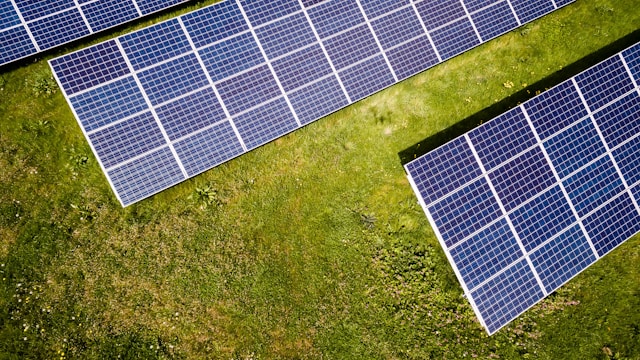Investing in solar energy is more than just a trend; it’s a smart financial move that promotes energy optimization while also contributing to a sustainable future.
With increasing energy costs and growing environmental concerns, many homeowners are turning to solar solutions to save money and harness the power of the sun.
This article will explore how solar energy can help you optimize your energy consumption, reduce your utility bills, and ultimately save you money in the long run.
Understanding Energy Optimization
Energy optimization refers to the process of improving energy efficiency and reducing energy waste. It involves using technology, such as solar panels, to harness renewable energy solutions and minimize reliance on traditional energy sources. By investing in solar energy, homeowners can significantly reduce their energy costs and enhance their home’s efficiency.
The Rising Costs of Traditional Energy
In recent years, the cost of traditional energy sources has been on the rise. Electricity prices continue to climb, driven by factors like increased demand, limited resources, and environmental regulations. As a result, many families are finding it increasingly difficult to keep up with their energy bills.
Switching to solar energy can provide a solution to this problem. By generating your electricity, you can reduce or even eliminate your reliance on the grid, ultimately saving you money.
Benefits of Investing in Solar Energy
The most significant reason many homeowners turn to solar energy is the potential savings. By installing solar panels, you reduce the amount of electricity you need to purchase from the grid, which can lead to significant long-term savings on your utility bills.
Lower Utility Bills
One of the most significant advantages of solar energy is the reduction in utility bills. When you install solar panels on your home, you can generate your electricity. This means you will draw less power from your utility provider, resulting in lower monthly bills.
Moreover, in many areas, you can sell excess energy back to the grid, further offsetting your costs. Depending on your location and the size of your solar installation, you may even eliminate your energy bills entirely.
Energy Independence
Investing in solar energy gives you greater control over your energy sources. As traditional energy prices rise, solar energy allows you to produce your power, reducing your dependence on the grid. This independence can be especially beneficial during periods of high demand or when natural disasters disrupt traditional energy supply lines.
Homeowners can now control their energy needs. Companies like Blue Raven Solar provide financing and flexible installations. This helps them avoid rising utility rates.
Increased Home Value
Solar energy systems can increase the value of your home. Buyers often pay more for homes with solar panels. They know it will lower their energy costs.
This added value makes solar energy not only an effective way to save money on energy bills but also a wise long-term investment in your property.
Government Incentives and Tax Benefits
Many governments offer financial incentives to encourage the adoption of solar energy. These can include tax credits, rebates, and grants. They can cut the upfront costs of installing solar panels. The Federal Investment Tax Credit (ITC) lets you deduct some solar installation costs from your federal taxes.
State and local governments may also offer additional incentives, making solar energy even more affordable. By taking advantage of these programs, you can save a considerable amount of money on your investment in solar technology.
How Solar Energy Works
Understanding how solar energy systems work can help you appreciate their benefits. Here’s a simple breakdown of the process:
Solar Panels Capture Sunlight
Solar panels are made up of photovoltaic (PV) cells that convert sunlight into electricity. When sunlight hits the panels, it generates direct current (DC) electricity.
Inverter Converts DC to AC
The DC electricity produced by solar panels is not compatible with most household appliances, which use alternating current (AC). An inverter converts the DC electricity into AC electricity, making it usable for your home.
Energy Usage and Excess Energy
Once converted, the AC electricity is used to power your home. If your solar panels generate excess electricity, you can send it to the grid. This lets you earn credits or payments from your utility provider.
Energy Storage Options
Many homeowners opt to install battery storage systems to maximize their energy optimization. These batteries store excess energy produced during sunny days for use during cloudy days or nighttime. This further reduces reliance on the grid and increases savings.
Tips for Maximizing Your Solar Investment
To ensure that your investment in solar energy is as effective as possible, consider the following tips:
Assess Your Energy Needs
Before installing solar panels, evaluate your energy consumption patterns. Understanding how much energy you use will help you determine the size of the solar system you need.
Choose the Right Location
The solar power efficiency depends on their placement. Ensure that your panels are installed in a location with maximum sun exposure. Roofs that face south and are free from obstructions like trees or buildings are ideal.
Monitor Your Energy Usage
Using smart home technology can help you monitor your energy usage in real-time. This can help you adjust your habits and save more energy.
Schedule Regular Maintenance
While solar panels require minimal maintenance, it’s essential to keep them clean and in good working condition. Regular inspections can help identify any issues that might affect their efficiency.
The Environmental Impact of Solar Energy
Investing in solar energy is not only beneficial for your wallet but also for the environment. Coal and natural gas are traditional energy sources. They significantly emit greenhouse gases, which harm our planet.
Solar energy, on the other hand, is a clean, renewable resource that produces no emissions during operation. Switching to solar energy helps reduce your carbon footprint. It also promotes a sustainable future.
Save Money While Supporting a Sustainable Future
Investing in solar energy for energy optimization is smart and has many benefits. From lower utility bills to increased home value, the advantages are clear.
As you consider your energy options, remember that investing in solar not only saves you money but also contributes to a healthier planet. The transition to solar energy is not just a choice; it’s a step toward a sustainable future.
For more cool reads and a ton of knowledge, make sure to visit our blog!



